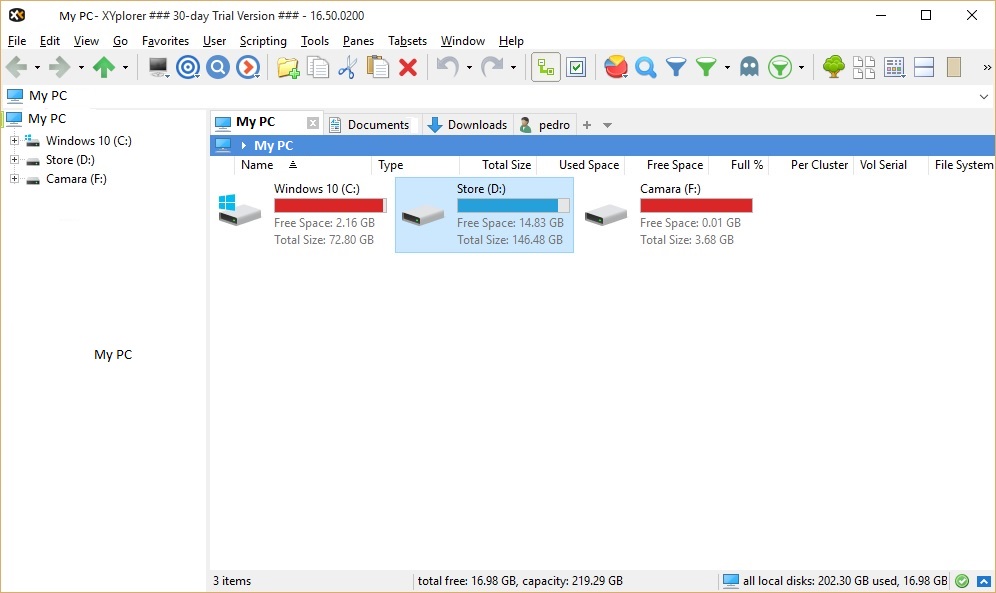
This works well for music files and jpg images, where standards describe how the metadata should be embedded in the files. In such a file manager, you can click on the Album column to sort your music, or on the Height column to sort your images. This is useful not only in a music playback device and in music management software, but also if you use a file manager that lets you see the various metadata fields in columns. These fields (and others, such as permissions) are stored by the operating system.īy now, most people who have used mp3 and other music files are familiar with the idea of embedding metadata inside each track (for instance, the artist and album names). ✽ Adapting the Scripts for Other Kinds of Filesīefore diving in, let's step back for a moment to look at various ways data about files (or metadata) can be stored.Ī file's very name is metadata. ✽ A Comics (or Books) Database based on File Names
XYPLORER CREATE LINKED FILES MOVIE
This page contains a complete walk-through of the technique, as well as two fully fleshed-out packages (one to manage movie files, the other to manage books or comics files), and instructions to adapt these packages to any kind of files.įor easy navigation, here are some jumping points to various sections on the page:

This technique is useful to manage many kinds of files, from an architect's CAD files to a dentist's collection of comics. For instance you can embed the name of a key actor, an award won by the movie, a yes/no flag indicating whether you've seen it-basically any data about movies you feel like keeping in your "database". If you press Ctrl + I, the IMDB page for the movie opens! ✽ The "tt" column contains the movie's IMDB code. ✽ the file names are in the column at the very left (which has been minimized and only shows an arrow). ✽ the files themselves do not contain the metadata shown in the columns. ✽ the metadata displays correctly even though the files are in different formats ( avi, mkv). Several key features may not jump out at you: With such a layout, you could click the "Year" column to sort the movies by year of release, or group the movies by country code. The example in the image above shows comedy movie files with columns for the title, director, duration in minutes, year, IMDB rating, country code, language and subtitle format. By embedding data in a file's name according to a naming convention, you can ask your favorite file manager to show data about the file-such as a movie's year and director, a book's author and number of pages, or any kind of value or "flag": Is the status "on hold"? Is the game compatible with macs?

This page presents a blisteringly powerful way of organizing files.


 0 kommentar(er)
0 kommentar(er)
